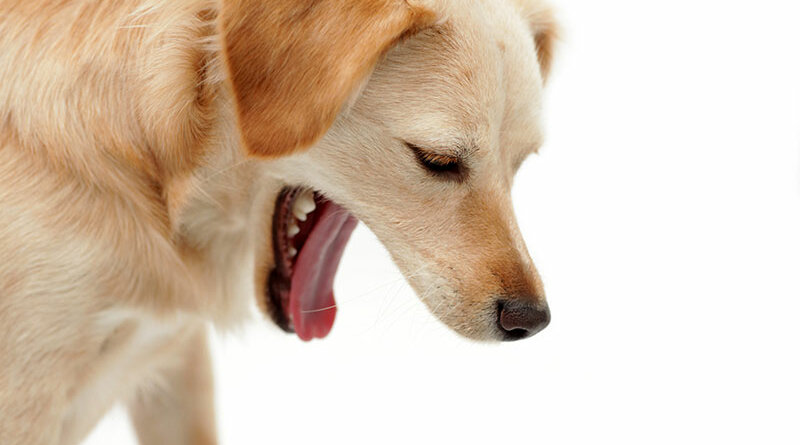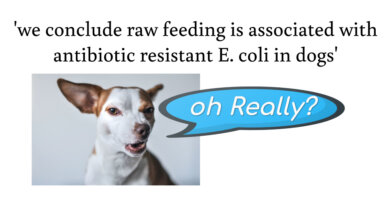Kennel Cough in Dogs – An Expert’s Guide
Kennel cough is one of the most common diseases that dog owners should look out for and, in some cases, it can cause serious health issues for canines. Kennel cough is officially known as Canine Infectious Respiratory Disease Complex (CIRDC) and it affects the respiratory system of dogs. The name “kennel cough” became widely used because of the belief that the disease spreads most easily in kennels, where large numbers of dogs are kept together. However, don’t let this fool you–dogs can contract kennel cough from anywhere that they come into contact with other dogs, whether they are out on a walk or playing in the yard.
Kennel cough was historically thought to have been caused by the bacteria Bordetella bronchiseptica, however we now know other organisms are also involved, which is part of the reason that it is such a difficult disease to eradicate. There are over 20 viruses, bacteria, and mycoplasmas which may contribute to kennel cough, many of which have only been linked to the illness in the last 10 years, so we are still learning about the disease. We do know that it spreads easily in the air, so coughing dogs are at risk of transmitting the disease to those around them.
Symptoms of Kennel Cough
Kennel cough can cause some very unpleasant symptoms for dogs, which can appear almost as if they are suffering from the flu.
- Dry, hacking cough.
- Gagging
- Sneezing
- Nasal discharge
- Mild fever (above 102.5°F)
- Lethargy
- Decreased appetite
The most common symptom of kennel cough is a dry cough which sounds like they have something caught in their throat. Sneezing, nasal discharge and coughing up phlegm are also signs that a dog may be suffering from kennel cough, so be careful not to mistake this for vomiting, as owners sometimes confuse the two. A dry throat can also make it uncomfortable for dogs to eat, so kennel cough may lead to a decrease in your dog’s appetite.
GET THE BARK IN YOUR INBOX!
Sign up for our newsletter and stay in the know.
Dogs with kennel cough may also experience a mild fever (any temperature above 102.5°F is a warning sign), so keeping track of their temperature can help you spot illness early. Lethargy is another symptom to be aware of. If your dog seems tired or listless, then this may be a sign that something is wrong. Speak to a vet if you are worried about your dog’s health.
Kennel Cough Treatment
If your dog is diagnosed with kennel cough, supportive care is usually all that’s required.
- Give your dog lots of TLC!
- Make sure they have plenty of clean, fresh water and a nutritious diet.
- If your dog seems to have a hard time eating due to a sore throat, you may want to soften their dry food with a little warm water for a few days.
- Provide a warm, dry place to rest.
In mild cases, helping dogs recover from kennel cough involves giving them lots of care and attention. Keeping them supplied with clean, fresh water is vital for keeping sick dogs’ strength up, as is maintaining a nutritious diet. If your pet is struggling to eat dry food, as this may be uncomfortable for them with a sore and itchy throat, try soaking their dry food in warm water for a couple of hours in order to soften it up. Finally, keeping dogs warm, dry and providing them with support and company while they get better are all good ways to get them on the road to recovery.
In more serious cases, veterinary attention may be required, particularly where the illness persists for more than 3-5 days. A vet may prescribe either cough suppressants or antibiotics to help a dog fight off the infection, but you should always make sure to see a vet before giving your dog any medication. Due to the contagious nature of kennel cough, if your dog has symptoms it is best to keep them at home and away from other dogs, to make sure that they do not infect any other canines. They should stay at home for around seven days after they have stopped coughing, to make sure other dogs in the area are safe.
Can Kennel Cough Be Prevented?
Getting your dog vaccinated is the best way to prevent them from contracting kennel cough. Vaccination does not always offer total protection against the disease, most vaccines target the top three causative agents, (there can be other offending organisms), but it can give them the best possible chance of avoiding infection. The Bordetella vaccine helps to guard against the top three causes of kennel cough and can be administered once a puppy is six-eight weeks old. This might come in a variety of forms, including intranasal drops, oral liquid or an injection. Depending on the type of vaccine that is administered, dogs may need to get a booster between two and four weeks after the first dose. However, due to the complicated nature of the illness, keeping your dog topped up with all of their vaccines is the safest option.
Although getting puppies vaccinated as soon as possible is best, it is never too late to get your dog vaccinated. In fact, it is all the more important that older dogs are vaccinated for kennel cough, as geriatric canines tend to have weaker immune systems, putting them at greater risk of illness. As well as being important for dogs’ health, many boarding facilities and groomers will not accept dogs unless they are vaccinated, so make sure to keep vaccination records safe and up-to-date. It takes around three weeks for immunity to kick in after the vaccine, so make sure to plan ahead if you are planning a trip to the groomer!





Konsekvensene kan virke skremmende, men det finnes alternativer. Cialis er et som til a behandle erektil dysfunksjon og er tilgjengelig med lege.Cialis